August 2020: Renewable Energy News
Tucson Electric Power promotes EV charging program for businesses, learn which of America’s colleges and universities are leading the transition to a 100% renewable energy system, Tucson-based SOLON Corporation has been recognized by Solar Power World magazine, Tempe-based Persefoni launches technology to help companies document their carbon emissions, Arizona energy giant Salt River Project provides free trees to be more energy-efficient, Electrify America develops cross-country EV charging infrastructure, and more.
 America’s Top Colleges for Renewable Energy 2020
America’s Top Colleges for Renewable Energy 2020
America’s colleges and universities are leading the transition to a 100% renewable energy system. Small liberal arts colleges, large public universities and community colleges alike, from every corner of the United States, are taking the lead in reducing energy consumption, deploying renewable energy technologies, and switching to electric vehicles (EVs). The nation’s leading campuses for clean energy—from Georgetown University to the University of Idaho—are setting a strong example for other colleges and the nation as a whole to follow. More than 40 colleges and universities now obtain 100% of their electricity from renewable energy sources. Campuses are also leading in cleaning up America’s transportation system. Each of the top 10 schools for in this ranking has switched over 60% of its campus-owned vehicles to EVs. Download the report to see who’s leading the transition to 100% renewable energy on campus >>
 Electric vehicle company Lucid plans new product line to include SUV and pickup truck to follow sedan
Electric vehicle company Lucid plans new product line to include SUV and pickup truck to follow sedan
California-based electric vehicle company Lucid is planning an SUV to go along with its upcoming Air sedan, and beyond that, a pickup truck isn’t out of the question. The company initially planned to debut the Lucid Air at the New York Auto Show in April, but that event was cancelled due to the COVID-19 pandemic. The wraps will now come off in a global online reveal in September. The company is building a factory in Casa Grande, Arizona, which it said is the only facility in the U.S. purpose-built for electric vehicle production. Lucid CEO Peter Rawlinson said the factory is being built in the record time of eight months from “a piece of dirt” to a pilot production line that will be installed this month. The first Lucid Air models are planned for delivery in the spring of 2021. Read more >>
Op-Ed: Congress must renew clean energy monies for Arizona
As our nation considers what is likely to be its final COVID-19 relief package, we must invest in the clean energy sector. Renewables will provide relief through both job and energy security, while paving the way for a sustainable and just future for generations to come. Solar investment tax credits provide a unique opportunity. These tax credits are essential to solar development in Arizona, largely due to a lack of statewide policy for renewable energy development. Just recently, the Arizona Corporation Commission failed to adopt new energy rules that would set incremental renewables targets. But why renewable energy incentives? We can’t afford to go backward on clean energy or for one of Arizona’s fastest-growing industries to take such a huge hit. Read more >>
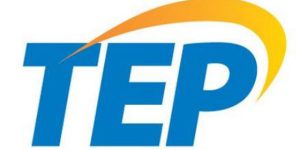 Tucson Electric Power promotes EV charging program for businesses
Tucson Electric Power promotes EV charging program for businesses
Tucson Electric Power’s new Smart EV Charging program now makes it far more affordable for commercial customers to install EV charging stations on their premises. Businesses, multi-family housing complexes, educational institutions and nonprofit agencies can receive rebates of up to 85 percent of the project cost to purchase and install two to six Level 2 or DC fast charging ports. The highest incentives are given to customers located in lower-income areas. Businesses also can qualify for a federal tax credit of 30 percent of the cost of installing EV chargers up to $30,000, if installed by December 31, 2020. Learn more how businesses in Tucson are embracing EV technology >>
Arizona solar company receives recognition by Solar Power World
Tucson-based SOLON Corporation has been recognized by Solar Power World magazine as the No. 1 commercial solar contractor in Arizona for the second year in a row, and among the top 26% nationally. SOLON’s 2019 installations totaled 12.3 MW, a 66% year-over-year increase. SOLON offers a broad range of solar modules and systems for private households to generate solar power on the roofs of their houses.
To learn more about SOLON’s technology, products and services, visit www.solon.com.
 Tech firms offer carbon-tracking software to meet oil-investor demands
Tech firms offer carbon-tracking software to meet oil-investor demands
Increasingly, more and more tech companies are launching software that oil and gas producers can use to measure their carbon emissions due to mounting investor pressure to curb greenhouse gases. Top investors have put climate change on their agendas, encouraging energy producers to evaluate programs to help track emissions and report on results. And software giants SAP and Salesforce.com and start-ups, including Tempe, Arizona-based Persefoni, have launched products to help firms document their emissions. Read more how artificial intelligence and other innovative technologies is tracking and monitoring carbon emissions >>
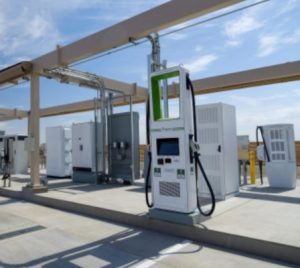 New cross-country EV charging infrastructure is electrifying
New cross-country EV charging infrastructure is electrifying
Electrify America, the largest open direct current (DC) fast-charging network in the U.S., today announced it will work with Love’s Travel Stops, the nation’s industry-leading travel stop network, to bring public ultra-fast electric vehicle (EV) charging stations to seven locations in six U.S. states. The seven charging stations, located in Oklahoma, New Mexico, Utah, Florida, New York and Arizona, will have a combined 28 EV chargers and be available for public use by early 2021 – with five locations already open. The most recent Love’s station opening in Salina, Utah, helped complete a cross-country route of Electrify America chargers spanning from Los Angeles to Washington, D.C. To view whether a station near you is open and for a full list of Electrify America station locations, visit https://www.electrifyamerica.com/locate-charger.
Read more >>
FreeWire deploys next-generation ultrafast EV-charging at convenience stores
FreeWire Technologies, a pioneer in flexible and future-proof power solutions, has announced the deployment of Boost ChargerTM at an ampm fuel and convenience store in Lodi, California. Boost Charger is the first battery-integrated ultrafast electric vehicle (EV) charger deployed in the US. By using the integrated battery as a buffer, Boost Charger is able to “boost” the existing power at the site, thus delivering the highest power output in the region while enabling widespread deployment at any commercial location. Fueling stations and convenience stores have had very few options to provide EV charging until now. Boost Charger easily connects with ampm’s existing infrastructure, allowing the system to be installed in hours without requiring expensive new grid power supply. Boost Charger can be powered from a single-phase connection and installed in places that previously could not support higher power demand. Read more >>
 SRP program provides free trees to be more energy-efficient
SRP program provides free trees to be more energy-efficient
With so many working from home due to COVID-19, and with it being the hottest summer on record in the Valley so far, home energy usage is likely higher than in previous years. Projections from the Energy Information Administration show that future home A/C usage in the United States will go up 59% by the year 2050. With this in mind, SRP is doing what it can to help its customers and the environment, too. The company’s Shade Tree Program will provide customers with two desert-adapted trees to help them save energy, conserve water, and green up their yards. The trees are free for SRP customers. To find out if you’re eligible and if you would like to register for the online webinar, VISIT HERE >>
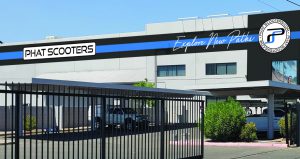 Phat Scooters will open new HQ and manufacturing facility in Phoenix
Phat Scooters will open new HQ and manufacturing facility in Phoenix
Phat Scooters, a leader in Neighborhood Electric Vehicle manufacturing, will soon be opening a new headquarters in Phoenix, Arizona. The company signed a long-term lease for a 44,162-square-foot industrial/flex building located at 3637 E Miami Ave. in the Phoenix Sky Harbor Airport submarket. Phat Scooters is relocating and significantly expanding its operation from its previous location less than 10 minutes away in neighboring Tempe. Phat Scooters’ new freestanding headquarters facility will be used for manufacturing, distribution as well as house the company’s corporate offices. One of the major attractions of the property is the more than three acres of paved fenced yard that will be used as a test track by the company. Phat Scooters is expected to take occupancy of its new Phoenix facility in September. Read more >>
 Lucid Motors has ambitious plans to defy skeptics and take on Tesla
Lucid Motors has ambitious plans to defy skeptics and take on Tesla
Start-up electric vehicle manufacturer Lucid Motors says they have the cash, technology and talent to become one of the first real rivals to Tesla Motor Company. With tough competition in the electric-vehicle market, Lucid is working hard to differentiate and validate itself from a growing list of electric-vehicle startups promising to change the world and bring new electric vehicles to market in the coming years. The challenge right now is there are so many companies trying to break into the auto industry. Lucid’s first product is expected to be a luxury sedan – priced “well north” of $100,000 – called the Lucid Air. The company has built about 40 prototypes of the vehicle. It plans to unveil its final version of the car on Sept. 9, followed by production and customer deliveries next year. Read more about Lucid’s prospects to be a successful company >>
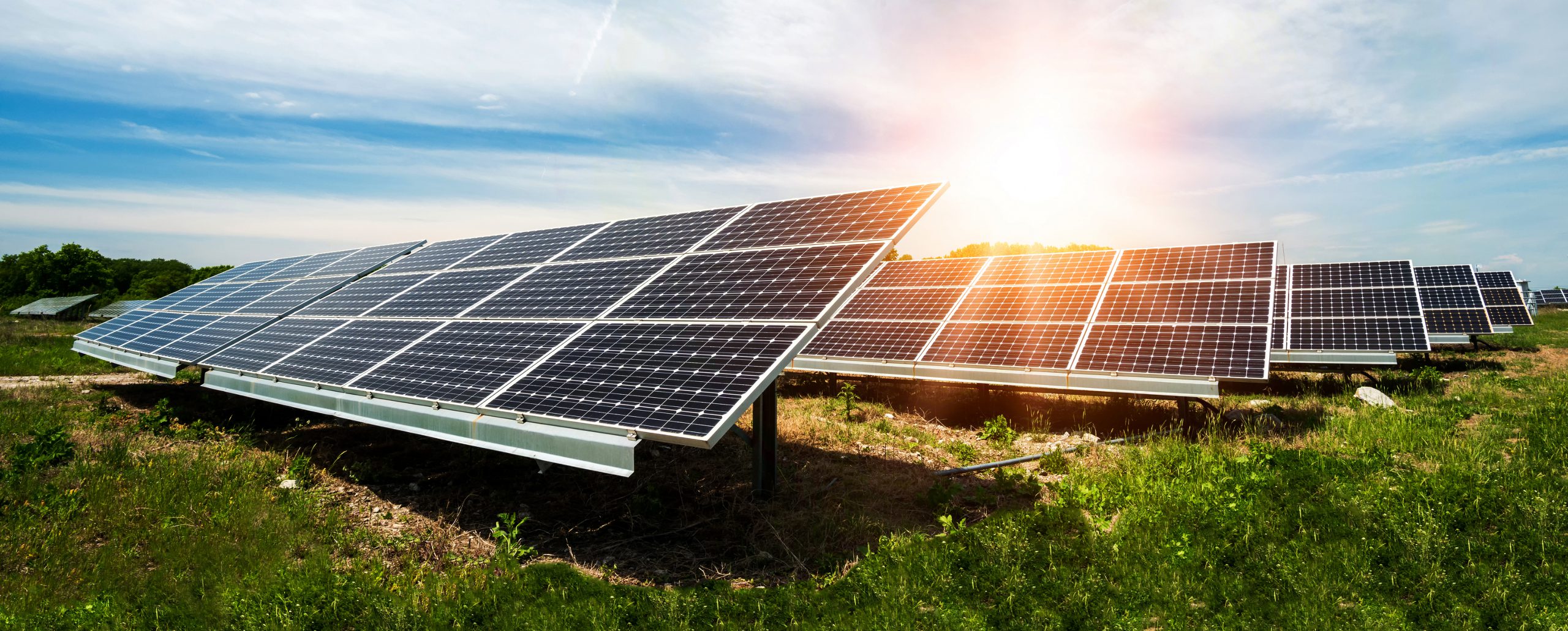 New state rules limit rooftop solar systems in some Tucson neighborhoods
New state rules limit rooftop solar systems in some Tucson neighborhoods
Tucson Electric Power (TEP) has been rejecting some new applications under new state rules governing how rooftop solar systems and other renewable-energy systems get connected to local utility grids. The new rules, which were adopted by the Arizona Corporation Commission last November and went into effect in February, are aimed at streamlining the process with “fast-track” approval procedures for so-called distributed energy generators — mainly rooftop solar photovoltaic systems. But one new rule limiting the solar generating capacity on any one neighborhood circuit has prompted TEP to reject some solar applications in areas where solar installations have reached a certain maximum capacity. TEP says the rules are needed to protect the system from damage due to an excessive amount of power being exported back on the main power grid, which could affect service and pose a safety hazard to utility workers.
Read more about the neighborhood solar-capacity rule >>
7 ways that climate change will drastically change the way we live
According to a study published by the University of Maryland published last year, US cities are set to heat up quite a bit by 2080. The city of Denver, Colorado, is predicted to become as hot and wet as Borger, Texas and Philadelphia will feel warmer and drier, like Memphis, Tennessee. In addition to some cities becoming unbearable and unliveable in the very near future, scientists are predicting the many other ways could our ways of life change as a result of climate change, including frequent blackouts and power outages due to extreme weather conditions, infrastructure problems from rising heat temperatures, increased flooding, and more. Read the article >>
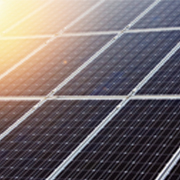 Why solar stocks will thrive during a recession
Why solar stocks will thrive during a recession
Technically, the U.S. is already in recession territory but we may only be at the beginning of the long-lasting impacts of COVID-19’s economic fallout. Unemployment is staying stubbornly high just as stimulus checks and generous unemployment benefits run out. Meanwhile, companies are running out of reserves and their own stimulus funds, which could lead to more layoffs in coming months. When recessions hit, consumers often look for ways to save money without giving up a lot of their lifestyle. Cutting back on eating out, eliminating gym memberships, or putting off that next new car are simple ways to save money. But so is going solar. Whether customers choose to go with power purchase agreements, leases, or loan financing, the monthly cost of solar panels should be less than the cost of utility electricity being offset. Read more about the benefits of solar energy >>
